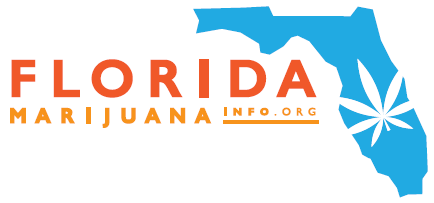Over 71% of voters in Florida approved an amendment that sought to expand medical pot in November, 2016. However, the fate of marijuana patients who have heavily relied on weed and the growing marijuana industry could wait for a directive from President-elect, Donald Trump. A lot of what the cannabis industry is founded upon is some of the judgment currently existing at the federal level. These sentiments were shared by Michael Bronstein from the American Trade Association for Cannabis and Hemp. Florida is in the list of the 28 states that have passed laws decriminalizing medical and/or recreational marijuana. However, the federal government still regards marijuana as an illegal substance. Federally, there is no law supporting the growth, possession and sale of cannabis for any use. Despite such stands, the cannabis industry has been permitted to continue its operations following a memo that was issued through the Obama administration in 2009, particularly to prosecutors at the federal level requiring them to direct certain federal resources into investigations of the extensive drug dealers that have not complied with the state laws or are participating in international drug cartels. The memo required authorities to keep off ailing patients on such matters. However, could that change as the new administration takes office next year?
The recent announcement of Senator Jeff Sessions as Trump’s choice for attorney general could invite trouble for the cannabis industry in Florida. During his spell as a federal prosecutor, Sessions is known to be a callous anti-drug warrior. In an April 2016 hearing, he reiterated that cannabis was dangerous and further asserted that good people don’t smoke it. Well, there are people who are in panic mode right now: those who pushed for marijuana reforms in Florida. All the same, there are also reasons why they should not feel threatened yet. We all know that marijuana is very popular among voters in the U.S. This includes a group of Trump supporters. Currently, more than 50% of the states have marijuana laws that legalize its use for different reasons. Such a statistic is becoming too big to break and if that was anything to go buy, the weed uncertainties in Florida will be addressed without much hassle. Trump’s base was characterized of white men who didn’t have college education and we all know what cannabis’s base is.
President-elect Trump has assumed contradicting positions on the subject of cannabis over the years. During the 1990s, he supported the legalization of drugs. In recent times during the campaign period, he however told the Washington Post that the matter of marijuana should be left to individual states to decide. Later on, Trump said that he fully supported medical cannabis although he was not so clear about how he would deal with it when he becomes president. Jason Miller, Trump’s spokesman emailed a statement saying that the new administration will take time to discuss policy particulars after all cabinet posts have been filled. Compared with other states like Oregon and Washington, which have permitted recreational cannabis use, the medical cannabis industry in Florida is way smaller, emerging and more stringently regulated. The legislature in Florida voted in a law in 2014 that allowed patients with chronic seizures to use a non-euphoric type of the substance. The recent amendments that were passed during the 2016 elections expanded the Florida laws to provide more potent marijuana to patients suffering from cancer, glaucoma, HIV/AIDS, PTSD, Crohn’s disease, epilepsy and Parkinson’s disease among others. However, that was not the end. Lawmakers are still expected to pass a bill in 2017 establishing the regulatory structure for the manner in which the marijuana industry will carry out its operations. Again, it will also be important to establish what county and city rules will apply concerning the location of marijuana dispensaries. All these are uncertainties that the future presents to the legal medical pot industry in Florida. It is not yet clear how this will roll out among entrepreneurs offering medical cannabis to patients in Florida. As things stand, business men and women are taking a lot of risk by not having clear information on the regulatory requirements.
One Ken Sukhia who served as a US attorney in North Florida at a time when Sessions was a federal prosecutor in the 1990s in an adjacent Alabama district said that Session’s harsh anti-cannabis positions didn’t go for small-timers. He also said that Sessions did not hold a different office from theirs and didn’t go after possessors. Instead, there were much bigger cases. Arresting cultivators and medical pot company operators would in addition snuff out an emerging industry. According to Arcview Market Research organization, legal marijuana sales topped $5.4 billion last year and are expected to reach a high of $6.7 billion in 2016. Florida sales were also projected to hit a high of $1.4 billion by the year 2020. Sukhia also said that any attempts by the Trump administration to crackdown on marijuana could cause a backlash from the weed-friendly states. This would cause unnecessary issues for Donald Trump whose main focus is on economic and immigration policies.














 OMD Agency
OMD Agency
Recent Comments